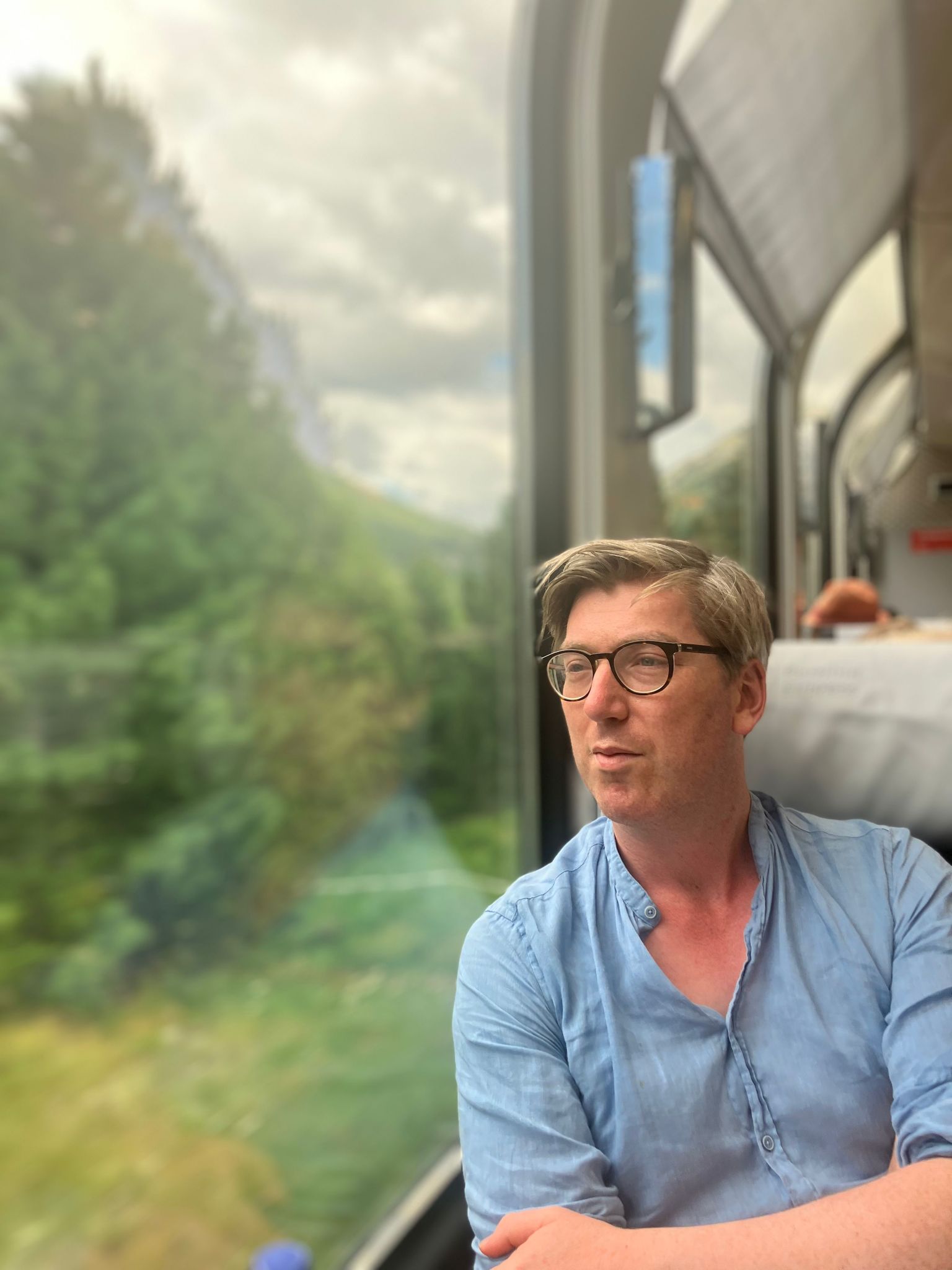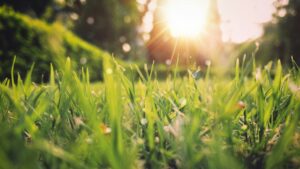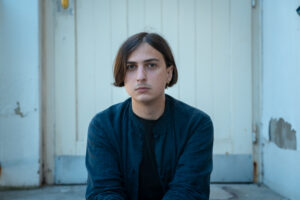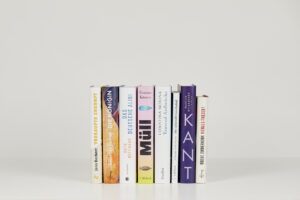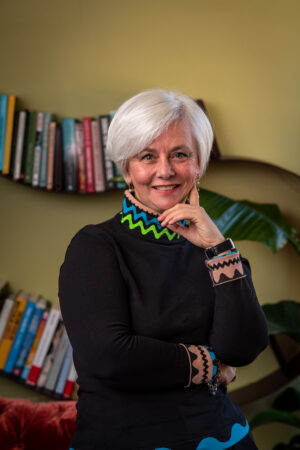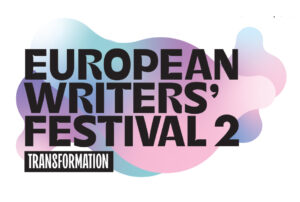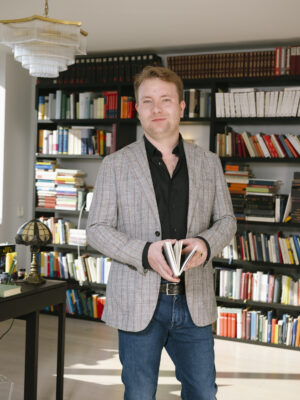Translator Yana Ellis interviews Dr Seán Williams from the University of Sheffield about German language, literature and culture. Seán also discusses his recent conversation with Benjamin Quaderer, author of Forever the Alps which was included in this year's New Books In German spring selection of the best new titles in German-language fiction and non-fiction.
Yana Ellis: Did you always want to be an academic?
Dr Seán Williams: No – after all, who knows what an academic is when they’re growing up! As a child I wanted to be a circus ringmaster, and in later years a priest. Both of those things are actually related to academia, which for me is a vocation. All three can be incredibly serious, but there’s also a certain amount of showmanship involved in each – quite aside from international mobility. I might sound flippant, but we have declining numbers of students in German Studies here in the UK, so you have to make the subject engaging, entertaining, and even covert people. I only decided to become an academic when I realised what academics actually do, which was when I was at university in Oxford – and on my year abroad in Trier especially, where I translated professors’ articles and gained an insight into their day-to-day working lives.
When you decided eventually to become an academic, what made you chose German language, culture and literature as your area of study?
I think there are two aspects to this: when it comes to German literature and cultural history, I took a winding route of trial, error, and opportunism – isn’t that how many of us end up quite far from what we imagine for ourselves when we start out in life? After graduation, I started a PhD in Germanic linguistics, originally in the US in Berkeley. Like many people in their early 20s, I too wondered whether I was doing the right thing – and ended up going back to literature and cultural history, but still firmly rooted in language work. Speaking more broadly, though, and the more important thing I want to bring out in this interview for the purposes of what you do, Yana, and what I do in a way – “translating” in the broader sense of German culture for a wider public – is that I picked German at school because of seeing Guildo Horn on TV at the Eurovision Song Contest. I thought, Gosh, that’s mad, terrible, fantastic. Kitsch – a good German word. I want to really study German. (I later ended up spending a year in Trier, where Guildo’s from, and sharing his love for Nussecken…but they were just coincidences, I promise.) Seriously, I think the trivial can give rise to the meaningful. And a lot of our choices in life are determined simply by what’s in everyday culture around us. Whenever we present our professional profiles as coherent, well thought-out, we should also acknowledge that backstage is not always a logical space – and we have to keep that lively, messy sphere in mind when we speak about German Studies beyond professional settings.
Seriously, I think the trivial can give rise to the meaningful. And a lot of our choices in life are determined simply by what’s in everyday culture around us.
Sean Williams
What do you think can be done further to promote learning German language, and studying German culture and literature at university level?
It’s really important to support initiatives working with schools, because German is supposedly now a strategic language for the UK. But it’s not just a matter of promoting German as a language. The numbers studying English and history are going down, too, so the cultural and literary side of German Studies – which is also crucial for language skills at the highest levels – is even more under threat than learning German for business, say. The more German cultural material that’s in the public sphere, whether or not it’s labelled as “German” – the better. I have friends and colleagues who are translators, authors, editors, etc. and all these people mediate German language and culture in vital ways, often in tins that say something other than “German Studies” on them. Great. All to the good. “German Studies” is just an internal category for us in universities, it doesn’t mean much to people outside of the academy. We simply need to normalise German “content” in conversations about culture. To make that happen there are these, let’s call them “instruments”, like New Books in German, institutions such as the Goethe Institute, the Austrian Cultural forum, Pro Helvetia… which are all fundamental to our collective success.
To put the point at its most basic, all you need is some good books translated from German into English, which are valued for their literary or entertaining qualities, films that become popular because they are good films, whatever. Though none of that happens just by chance, as we know. The more people are familiar or recognise German-language material in their everyday life, the more likely they are to then be curious about studying it as something distinct and inter-connected, or systematic – as a subject. So in some ways I try to let go of my disciplinary identity when doing public-facing work, ironically in the hope of reeling people into it later on.
We simply need to normalise German “content” in conversations about culture. To make that happen there are these, let’s call them “instruments”, like New Books in German, institutions such as the Goethe Institute, the Austrian Cultural forum, Pro Helvetia… which are all fundamental to our collective success.
Seán Williams
Where did the idea for your podcast (In Winckelmann’s footsteps) come from and why did you choose to follow in particular Winckelmann’s footsteps?
I have been doing radio and media work for a while, and Winckelmann’s murder is a story that is not unknown within niches of academia. But in culture more widely we have a true crime craze at the moment, which seemed a great way into introducing Winckelmann as a cultural figure – it’s often said that he is the founder of Classics, archaeology, modern art history, that he was instrumental to German literature – quite aside from the legacy of the eighteenth century more broadly. Winckelmann’s death and its afterlife opens so many different themes and, as becomes clear in the podcast, the murder turns into a myth that speaks in particular to cultural representations of homosexuality in modern Europe. Winckelmann’s story was a key for unlocking all these different aspects, in one single plot.
It so happened that I was going to Venice for three months – Winckelmann died in northern Italy – where I had a fellowship at the Centre for Public Humanities, so I was able to do research on location and visit the places significant to the tale (and the archives there). All came together in ways you cannot plan out systematically in some research proposal. In the media, the narrative I is also very important: I was learning Italian at the time, travelling through Italy; I’m a Germanist, but also a gay man. So the story was one of personal as well as academic interest. You could say I became a Winckelmanniac.
One of the things I loved about working with colleagues in BBC radio, which you don’t get everywhere, is that they wanted to include not only the sounds of a place, but also specifically of the languages. So, I included snippets in German and in Italian with their translations, woven into the text where they were especially evocative and seemed natural – where translation alone just wouldn’t have captured the scene as well. I wanted “German” culture to seep across a broad canvas of European cultural history without people seeing it as some kind of forced picture. In this way, listeners hopefully become interested for the story, and on their own terms.
What influence do you think the wider cultural and social issues that are touched upon in the podcast may have on the listeners or what are you hoping to allow listeners to do with that podcast?
I hope listeners will relate to the programme in ways that connect with what’s going on in their own lives, in the here and now. If that sounds presentist, we have always read the past according to our own present to some extent, and Winckelmann does that as well – and his work actually invites us to do so. Anyway, many of us read good stories associatively, perhaps in situ, and we read and map them onto ourselves. I did that by literally walking and reading in Winckelmann’s footsteps, at a time when LGBT+ rights were under attack in Italy, say, and when people popularly talk about contemporary culture as open and transparent and history, by necessary contrast, as times of repression and darkness. I wanted to complicate that binary sense of light and dark, the present and the past – but to do so implicitly. I didn’t want to spell too much out, or shout. At the same time, there is a very fine line between keeping ambiguity whilst providing some answers so as not to make the fascinating frustrating.
You have done some media work – both magazine and radio journalism. Do you see this as an extension of your academic work? How do the two relate to each other?
Obviously, peer-reviewed academic work and a magazine column or a radio documentary breathe and perform very differently. However, I think much of the underlying work to get to the finished product is comparable. For my journalism, I read a lot of secondary literature. There’s symbiosis. The research for, and the clarity that comes from, my writing aimed at wider audiences feeds through into academic prose, as much as the opposite is also the case. If you strip away the ways in which the stories are told, the work done in order to plot the tale is pretty similar. I really dislike the notion in academia that you have “blue sky” thinking that can then be “applied”, or “research findings” which lead to their “dissemination” and “impact”. That’s not the Humanities, to my mind. Some very academic content comes from everyday life and experiences, and sometimes it’s the other way around.
Tell us about your love of the Alps.
I started my career in Switzerland after my doctorate in the UK, and so again I sort of fell into a topic I find myself returning to again and again. Initially, I wasn’t drawn to the Alps in a Romantic way, but nostalgia soon set in after I’d left, and I’m pretty romantic about them now – because of course there’s the whole myth of the mountains within Swiss identity, and I’ve read too much literature about the Alps, sitting on that rock next to the yearned Edelweiss or whatever. It’s that myth-making of the Alps and Alpine Swissness that I’m intrigued by as much as anything.
If we think of the story of Winckelmann’s last few days, it’s said he took fright at the Alps and so went back down south to Italy – he was supposed to be going to Germany. That is a very evocative image, being terrified of the mountains. In contrast, we might see the Alps today as sublime in the much reduced, smaller sense of the idyllic – this is a very modern, kitschy idea from our time of passing through them easily, in the comfort of a railway carriage (where technology appears to have mastered nature, so that we can look on at it and simply say it’s beautiful).
You spoke to Benjamin Quaderer about his novel, which was one of the New Books in German jury choice Forever the Alps – what can you tell us about the book and its author, and what do you think would resonate about it with an English language readership?
That novel is a crime drama about a data thief, which then turns into a global story of corruption in a nutshell. Tiny little Liechtenstein finds itself at the centre of the world, high politics, and finance. There’s something inherently comic in that conceit. I mean, Liechtenstein is small, right: when I did a travel piece on the country for The Economist in 2019, we went paragliding, because the joke was you could actually see the entirety of the country from the air in a minute or two. Anyway, Benjamin Quaderer talks about his book very persuasively in the podcast, and it surely resonates not only because Liechtenstein is a microcosm of modern capitalism, but it’s also the opposite – and an anachronism from a previous era. In many ways, Liechtenstein’s a mythical, historical place. Founded within the Holy Roman Empire, its borders haven’t changed since; it still has a monarchy that has an absolute veto on anything that’s decided democratically, but equally there is direct democracy as well – which makes for a highly unusual, and contradictory, voting system. Liechtenstein as a setting is the perfect paradox, then, of both the highly specific, containable, perhaps the land history forgot, yet it connects to the transnational headlines of modern cultural history in our globalised world.
**Read more about Benjamin Quaderer’s Forever the Alps here**
You interviewed Sybille Berg for New Books in German. What do you think is particularly fascinating about her work?
I think it’s her style and the playful language she uses. She has a great way of making a reader laugh, antagonising a reader, manipulating a reader’s responses, and just the dexterity of her prose is quite astounding. She is serious, but somehow doesn’t take herself seriously. I really enjoy that in her writing. I first read her as an undergraduate, and was inspired. She once said she worked in the circus – I don’t know if that’s true.
Do you have any forthcoming projects that focus on German language literature or are you working on something that is a little bit broader?
I’ve just come out of the Winckelmann series, and a very pleasant surprise was the fact that it was also reviewed in Germany, in the Frankfurter Allgemeine Zeitung, even though Winckelmann is obviously far more well known over there. So I think Winckelmann is a story to be continued abroad as much as here. There are ongoing writing projects, too. But I always like to have a few pots on the boil, or to return to my bad opening metaphor… a few balls to try and juggle in the air.
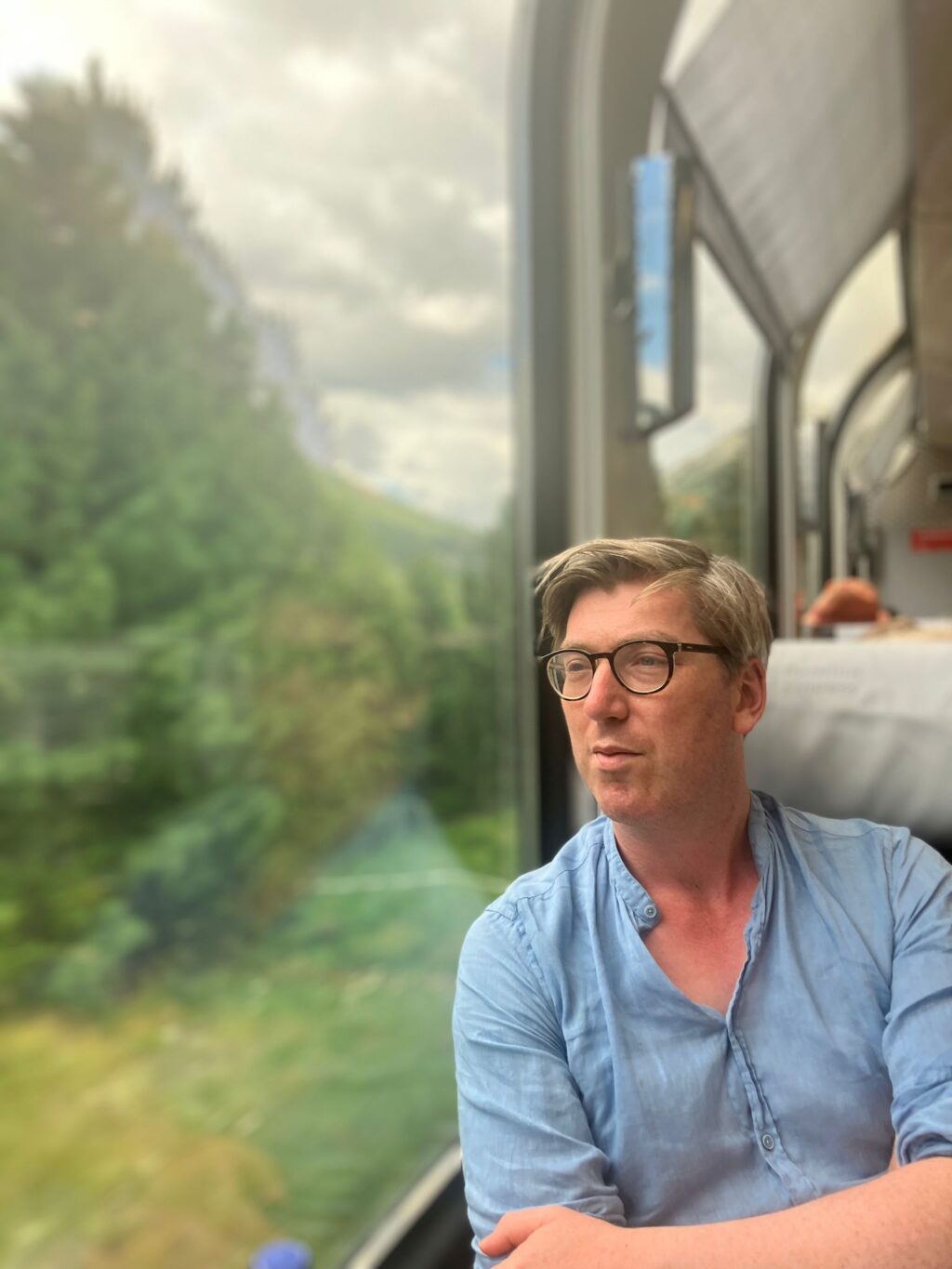
Dr Seán Williams is Senior Lecturer at the University of Sheffield, and a specialist on German and European Cultural History. He covered the Principality of Liechtenstein for The Economist on the state’s 300th anniversary. The podcast mentioned in this article is available on the website of the Austrian Cultural Forum. Find out more about Dr Seán Williams here.
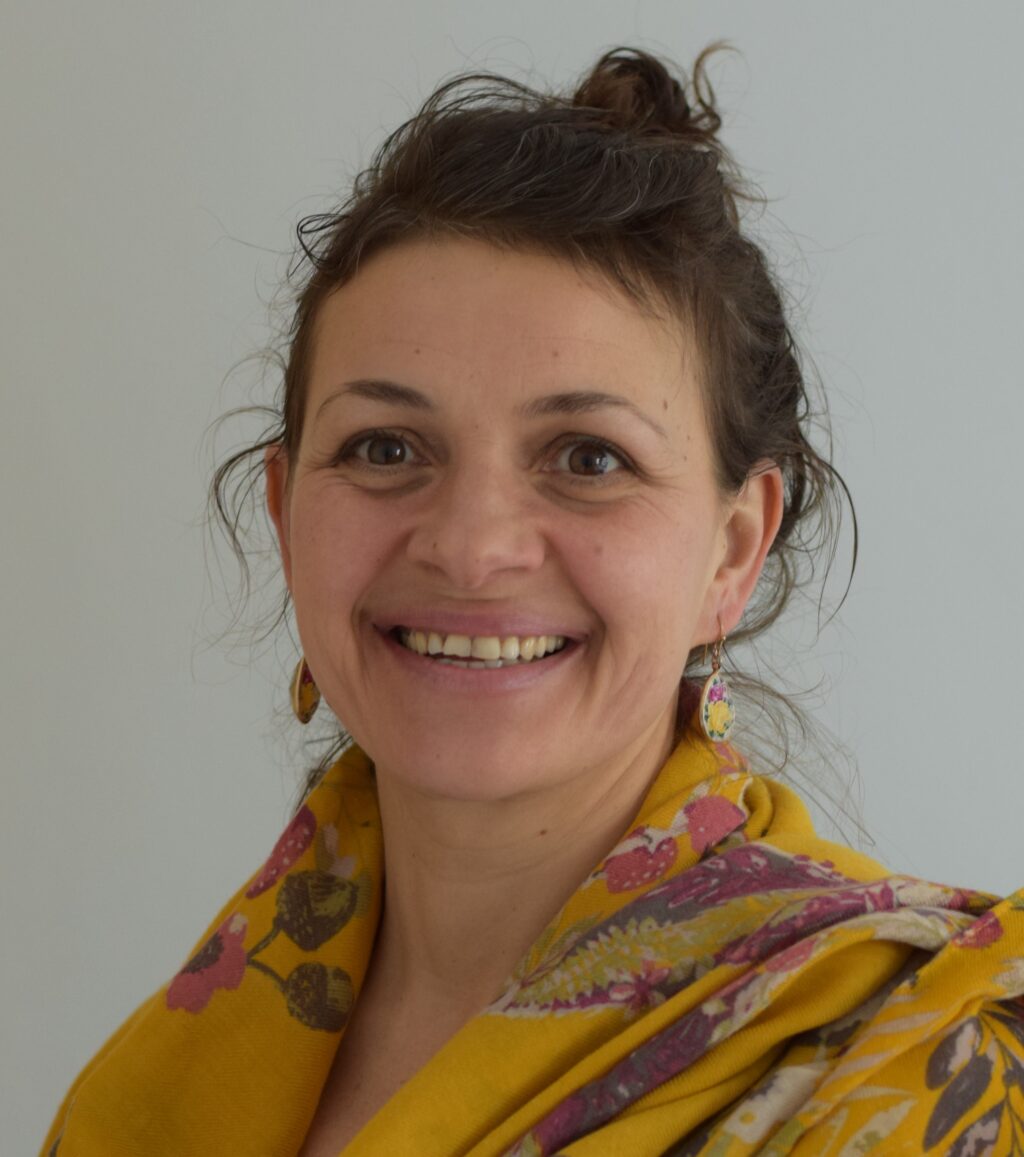
Yana Ellis is a freelance translator and reviewer. Yana is New Books in German’s intern for the autumn 2023 selection round.

